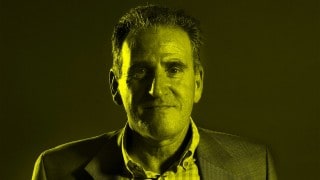Last year, science fiction writer John Reppion interviewed me about the rise of religious and secular apocalypticism for the British magazine The End is Nigh. A couple of weeks ago, John sent me the transcript of our interview and expressed regret that the magazine had apparently given up its ghost for good: “I think it’s fair to say that ‘The End Is Nigh’ seems to have… well, come to an end… fittingly.” I have made the full interview available here:
John Reppion: What do you think it is that drives us as human beings to constantly prophesise and predict the end of the world?
Benny Peiser: Well, it’s one of mankind’s oldest ideas; it goes back at least four or five thousand years. So it’s one of the biggest cultural and religious belief systems in itself and we carry that with us despite the fact that we thought that we had solved it, cracked it, overcome it in the last two hundred years. Today’s apocalyptic mood is slightly different from the past because you have different strands of apocalyptic culture. Obviously you have the religious strand which is becoming increasingly important particularly in the Islamic world but also in the Christian world. These are signs of deep cultural crisis and in these times of upheaval and uncertainty old traditions, such as apocalyptic traditions, come up again. From a religious perspective, apocalyptic views tend to promise some positive outcome. That outcome is almost always that the “bad guys” will all be killed off and the “good guys” will somehow miraculously survive the war. In this battle between good and evil, black and white the “good guys” will always win. That’s what is so attractive about the idea; it’s a very dualistic, black and white, simplistic promise.
John Reppion: It’s kind of an apocalypse for everyone else but not for that group?
Benny Peiser: If you believe in Allah or Jesus or whoever, you will survive because God will save you. And in that sense some people are actually looking forward to the final battle or Judgement day because, as far as they are concerned, it can’t come soon enough. They believe they will actually be better off. So you find a lot of these movements among people who are in deep crisis; political crisis, identity crisis, economic crisis, war torn, traumatised and so on. But then you have another very strong strand today and that is secular apocalyptic thinking, mainly coming from a deeply cultural pessimism about technologies. People worry that we have now developed a civilisation that can self-destruct as a result of large-scale technologies. That started with industrialisation and the idea of technology reaching a peak, but there is a very strong environmental, a secular doomsday mentality that looks at the world and humankind kind from an extremely pessimistic perspective. What these people are saying is: “it’s almost too late”, “we are destroying our own ecological foundations”.
John Reppion: It’s an interesting point because I think that there is a massive amount of guilt attached to that idea but also a certain degree of arrogance; the suggestion that the Earth is somehow “ours” and that it’s even within our power to doom or save the planet. And even though this is the secular strand we’re talking about, that concept seems to have religious overtones to me.
Benny Peiser: It certainly has, particularly the issue with guilt. In the traditional apocalyptic idea, the reason for all trouble, all problems, and all disasters is human sin. That’s why during the Middle Ages people were looking for scapegoats, such as witches, who were accused of causing crop failures or bad weather. People always believed that the problems were caused by humans. I think that’s where the guilt comes from; the urge to appease someone or something who is perceived as punishing us for our misdeeds. With regard to the second issue, I think you are right. We are obviously now in the driving seat in terms of future evolution of this planet, and it could go either way; no one can guarantee that there won’t be a nuclear exchange. That doesn’t necessarily mean that mankind would become extinct but there is no guarantee that some idiot (and there are lots of crazy people around unfortunately) won’t start nuclear warfare. The chances are small but no one can guarantee that it won’t happen. It all really depends on whether you are an optimist or a pessimist; an optimist could argue that today we have fewer wars than in the past. There is more international cooperation and contact than in the past and people are aware that it’s a big risk going to war. And we know that the UN statistics show that there are less wars, although you see them in the news a lot more. Statistically speaking the number of wars have declined. And that’s despite the fact that the number of people has skyrocketed. So, the question is whether you look at these problems as being solvable. Again, I think this is about optimism versus pessimism. We’ve gone through many period of trouble in our long evolutionary history and we’ve overcome many difficulties. We’ve solved many medical problems, people have more food than they have ever had, we live longer; basically we have living standards no generation before us has had, and long may it continue. But, there is disquiet and a lot of factors come into that; if you look at India, for instance, the people are very upbeat. Why is that? It’s because they can see that their country is developing economically and politically and they feel good. In Britain at the peak of the Empire, people where more upbeat because Britain had a place in the sun and was a big, powerful nation; a leading country in the industrial revolution and people felt good. Since then Britain has gone through more difficult times, economic crises and that always brings out the sceptics and the pessimists. Moods change; today we live in an apocalyptic age for a number of reasons but one hundred years ago, it was an age of optimism. Moods can and do change.
John Reppion: Do you think then, that when things are on the up and up, people are inclined to think positively but once economic growth reaches a plateau then people have more of a tendency to start focussing on the bad things?
Benny Peiser: And you forget all the struggles and problems that we have had getting to this point. Sixty years ago Europe was a battlefield, a slaughterhouse; millions and millions of people died. Most of our generation would have been off fighting somewhere with a great chance of losing our lives. We forget in all our “normality” just how exceptional the circumstances are in which we live today. But getting back to the question of why apocalyptic thinking is so prevalent today, I would suggest that the resurgence in religion in the past fifty or sixty years is the main driving force.
John Reppion: So, you think that there has been a renewed interest specifically in the apocalyptic aspects of religions recently? Are these old concepts being resurrected or are they fresh interpretations or additions to established teachings.
Benny Peiser: It’s a mix. In today’s radical Islam, just for example, there is clearly this re-emergence of the traditional Islamic apocalyptic idea (which is similar to the traditional Christian idea of Apocalypse where there will be this final battle between the “goodies” and the “baddies” and the messiah or the redeemer or whoever will arrive in the final moments and save the good ones). But Islamism is also strongly influenced by modern ideas like Nazism and Communism. You might think “how can radical Muslims be influenced by these secular, modern traditions?”. But, underneath Communism, underneath the National Socialist movement was this quasi-religious, dualist, Manichaean view. In many ways, it’s a similar way of thinking, a similar frame of mind where the world is divided between the good ones and the bad ones, and that is attractive to a certain kind of personality. That is part of today’s resurgence of religion. Yes, there are a lot of traditional, religious ideas, but they are mixed with a lot of modern, quasi-secular ideas. For instance, the nuclear threat is part and parcel of the religious resurgence. Although the nuclear threat didn’t exist twelve hundred years ago, it’s used today as a symbol of how the end might come about. When Mohamed spoke about the end of the world, he wasn’t talking about nuclear weapons; he was talking about God sending fire down from the sky and destroying mankind. Nowadays it could be nuclear technology, biotechnology, nanotechnology, any powerful technology that has replaced the original imagery.
John Reppion: So, whether it’s race, ideology, geographic location or whatever that unites a group, as long as there is an “us” and a “them”…
Benny Peiser: You can turn it into an apocalyptic idea, yeah. And that’s why it’s so deeply rooted, because somehow the average person is attracted to that kind of Manichaean dualism. I’ve tried to understand it from a psychological perspective as much as from a historical perspective why people are attracted to this kind of black and white frame of mind. And I guess that people who are under duress, are stressed and traumatised, they feel these feelings of hate and “us” versus “them” more strongly. People suffering from cultural upheaval or economic crisis tend to be more attracted to these kinds of ideas.
John Reppion: I suppose it could be seen as a need for belonging as much as anything else couldn’t it? An attempt to validate your self and make sure you are allied with the right side.
Benny Peiser: It elevates your group: “We are the chosen ones, we are the ones who are better. Currently, we might be no one - but in the end, we will emerge victorious”.
John Reppion: What effect do you think the millennium had in terms of focussing people’s minds on a specific date for a potential disaster?
Benny Peiser: Well, I think that the millennium had at least two interesting aspects. One is that everyone was gearing up to it and you had the Y2K scare and all kinds of predictions. The interesting thing is that none of it happened but, as we all know, that doesn’t mean that people stop predicting, they just jump on a different bandwagon.
John Reppion: That’s kind of what I was driving at; the idea that so many people got caught up in the apocalyptic ideas about the millennium and then nothing actually happened. Shouldn’t that discourage people from apocalyptic thinking in the future?
Benny Peiser: It doesn’t, though. It’s the same with millennial cults, very often their leaders would make a prediction that then doesn’t come true and a few people will drop out. But most people will then look for explanations about why this threat didn’t materialise. The whole way of thinking just moves to explaining why it didn’t materialise - and there’s always a reason. It’s not that the prediction was wrong, it’s just that there was an unforeseen factor and so the prediction is revised.
Why are people so fascinated by predictions? I guess because a lot of people are ill at ease with uncertainty and ambiguity . And predicting the future is an attempt at finding certainty in an uncertain world. If you think you know the future, you think you know what to expect and can prepare yourself psychologically. It certainly provides imaginary reassurance and reduces anxiety. Marxism, for instance, was a very powerful predictor of the future; there was a clear, historical, almost deterministic route to the future. All you had to do is to go through these stages to achieve the final utopia with no more inequality. It wasn’t a religious prediction; after all, it claimed to be a kind of scientific way of predicting the future - although it looked very much like the medieval three-phased historical model. It strongly resembles these traditional models.
But the fact that it was a method of predicting the future was a huge part of its attractiveness. If you promise people living in squalid conditions that their future is bright if they follow a plan, then that it is extremely attractive to believe this quasi-prophecy.
John Reppion: Also, isn’t it the case that the idea of predicting the future is very appealing but, even if those predictions turn out to be incorrect in any sense it doesn’t seem to faze people? I’m thinking in terms of the weather forecast or horoscopes which are both often equally incorrect but very rarely do people spend time lamenting their errors; it doesn’t matter once it has happened but, being able to know before it happens is just so appealing.
Benny Peiser: A lot of people take it with a pinch of salt. They have an open mind and think “well, it might happen or it might not” but they still like to hear or read about it. That is the psychology of it. We know from research into religions that certain religions are more appealing because they promise more. And that’s fairly straight forward. What is unclear to many is where it actually originated. And this is a question where my research interests are focused on. Where does the idea that the world could come to an end, in my view the most powerful idea devised by man, actually come from?
There are different theories but I’ve come to the conclusion that the most likely theory is that it is directly related to the idea of creation. If you develop the idea that the world is created - and created fairly quickly -, then you can imagine that this construct can be reversed. So the ancient idea of creation, I guess, was first and the idea that it could be “unmade” is just the mirror image of that.
I’m doing a lot of reading and research and work with many other researchers who deal with natural disasters and there are suggestions that perhaps natural disasters may have influenced those ideas too. Obviously, ancient people must have gone through many disasters. Experiencing such disasters, some survivors may have believed the world was coming to an end. Because in antiquity, of course, they couldn’t really assess the magnitude of natural disasters: a large scale disaster could easily have appeared to some like the end of the world.
But, even though that may have been an influence, I still think that any philosophy or religion that does not include a quick creation does not necessarily include the end of the world. That is confirmed if you look at the Greek philosophers, like Aristotle for example, who didn’t believe in creation and thought that the world was infinite; the world has always existed and it will go on existing forever.
If something isn’t created then you can’t really destroy it. So, the very idea that we live in a created world almost automatically implies that it could be destroyed by the same force. And, to be quite honest, modern cosmologists are just as divided as to whether we live in an infinitive world or a finite world as the ancient Greek philosophers were. We can observe much more than the ancient Greeks but we still don’t know what lies beyond what we can observe.
John Reppion: I suppose, in terms of the perception of the general public, the Big Bang theory is the most widely believed idea of creation (even if people don’t really understand it). So, do you think that instant creation in that sense also makes the idea of the end more believable to a lot of people?
Benny Peiser: That’s interesting because the modern cosmological consensus is exactly that. You only need to read Stephen Hawking or Martin Rees or any of the eminent cosmologists and they will tell you: it started with a Big Bang and it will eventually come to the Big Crunch. So, it’s really the Bible all over again in modern terms but, believe it or not, that is just what is currently believed. It doesn’t mean that any of it is the actual truth; there are numerous of cosmologists who question whether the Big Bang theory is completely sound, or whether there will ever be a Big Crunch. In fact, there was a conference in London this week about how definitive the Big Bang theory is and there were quite a few eminent cosmologists saying “come on, these observations could be interpreted in different ways”. So, as far as I’m concerned, I wouldn’t be surprised if in fifty years time we have a completely different view of our universe and its origins.
But you’re right; the public opinion says “even Stephen Hawking says that’s how it started”. Do you know this joke? A cosmologist gives a lecture in a university and he says “In five billion years, the sun will die and the earth will be uninhabitable”. A student pipes up and asks “I’m sorry, could you repeat that?” “In five billion years the sun will die”. The student is relieved “Oh, I’m so glad, I was so worried that you said five million years”.
John Reppion: But, if the next theory that comes along isn’t as concise and easily digestible as the Big Bang and perhaps doesn’t bear such a broad resemblance to certain religious ideas of creation, do you think it will be as readily accepted by the public?
Benny Peiser: Take Fred Hoyle, who was Britain’s most eminent cosmologist before Hawking came on the scene. He was always critical and he was always a loner. Although he was popular because he was very good communicator and he was eccentric, intelligent and charming, in terms of his criticisms of the Big Bang theory and his theory of a steady state of the universe he was a loner. You’re absolutely right that it’s because we are, as a culture, as a civilisation, we are more rooted in the Biblical tradition than in the Aristotelian tradition. For good reason, of course, It would be wrong of me to denigrate that in any way.
However, I would still like to think that the most important driving force in our civilisation is the search for truth rather than validating our traditions. If the evidence we see conflicts with the tradition, I would go with the evidence. It’s actually important for our survival. I think that we have to overcome the traditional dualistic ideas and structures. We have to do that because we need to interact with different people, different countries and different cultures.
John Reppion: That brings me on quite nicely to the issue of climate change. You’re known as somebody who doesn’t necessarily buy into the popular ideas of man made climate change in terms of the way things are being portrayed in the tabloids and on television. What do you make of this government’s ideas about a carbon budget?
Benny Peiser: I find this quite ridiculous really. But, for a start, my scepticism is mainly with the disastrous presentation of climate change rather than with the question what effect CO2 emissions have on the climate; I don’t doubt that they have. What I do question are these doomsday scenarios where it’s all going to end in a huge disaster. There is very, very little evidence for that because we have seen climate change in the past; we’ve gone through five million years of climate change. We survived so far and I don’t see any reason why we can’t come through whatever’s going to happen. My criticism is more about alarmism; the exaggeration and the use of apocalyptic arguments as a stick to beat down everyone who has doubts about imminent disaster. In that respect, I’m not really a climate change sceptic, I’m more a climate disaster sceptic.
With regards to the government, I don’t know whether you saw this on the news today but, CO2 emissions are actually rising - so it’s going in the opposite direction to what the government are saying and have been saying for the last ten years. In fact, it’s at a ten year high; three percent higher now than it was when Labour came to power. Now, I don’t blame Labour because the Tories are just as bad on this issue, and if you ask me, they want to be seen as greener than the Greens, which is a joke.
The reason why the government can’t bring down CO2 is that CO2 is essentially a proxy for economic growth. Economic growth enables people to consume; they will go on holiday and buy products and so on. Given that we don’t yet have any real, significant alternative energies or technologies, economic growth means an increase in CO2 emissions. Every commonsensical person and economist will tell you that you cannot reduce the emissions without dampening the economy unless you find other energies. You need something else to fuel the cars and the planes, but we don’t have that yet. In forty or fifty years we will have that but, in the short term, the government are going to make themselves look like complete idiots because they won’t be able to achieve what they say they want.
The reality of the last ten years shows that; they have said they want to reduce and the emissions have risen. The only reason why there was a slight dip in the early nineties was because there was the dash to natural gas, but now they’re going back to coal and bingo, emissions are up. Basically, it’s a lose, lose situation and to be quite honest, even if Britain were to stop everything tomorrow, close down completely, within one month, China would have pumped out more CO2 than we could have. China cannot afford to reduce its economic development. If they can’t satisfy the demands of their people, they have a revolution on their hands.
You have to remember that in India and in China now there are almost five hundred millions of aspiring middle class people. These people want a fridge let alone a car. They are saying that in twenty years two hundred million Chinese people will want to go on holiday and good for them. Why shouldn’t they?
John Reppion: There is the argument that the idea of CO2 emissions contribution to global warming is being used politically to keep the developing countries such as India and China down.
Benny Peiser: There are people, like the French president, who said that they were going to put a tariff on every product that comes from outside Europe, from every country that doesn’t sign to these specific climate protocols, thus trying to find a way of punishing or penalising these countries. Of course, there are those who worry about the implications of India and China becoming the new superpowers and Europe falling behind but, I am not a conspiracy theorist. I think that the big problem is that most politicians have fallen hook, line and sinker for what climate scientists have told them. A few scientists are raising the alarm, and most politicians might not realise that they are being driven into a corner by these ideas. They cannot win because once you make the claim that you are going to solve this now, people are going to want to see results. When you don’t deliver you look very bad and that’s what’s currently happening; they can’t deliver because it’s almost impossible to do so.
As I said, in order to reduce CO2 you need these new energies or technologies, neither of which exists in sufficient quantities. It will take a while but, in say fifty years time, we will look back and laugh. One hundred years ago people were worried about the horses dirtying the streets of London; they couldn’t even imagine that there would be cars.
John Reppion: So, they thought that eventually they’d all end up knee deep in horse…
Benny Peiser: Yes, that was the worry. Then came the car. So, in fifty years time, things will be completely different and we will look back upon this apocalyptic period and say “what was it that made people so anxious?”. We’ve been worrying about thousands of things; acid rain, the oceans, the rainforests and the interesting thing is that when you look into these things (and this is part what it means to stand outside of the mainstream and the accepted lore; it takes time and effort and not may people have the inclination to look at the scientific literature and the figures) you can’t think in black an white anymore. You have to think in much more complex ways where you have to weigh arguments, you have to be more guarded in your conclusions. That is a big problem for a lot of people – and dogmatic scientists. I wish we could live in a culture where people are encouraged to develop these kind of independent, more balanced, more moderate views which sometimes go against the general consensus.
John Reppion: You’re right, people want to switch on the news for ten minutes before they go to work in the morning and they want to be told what’s happening and not have to weigh it up or work things out in any way.
Benny Peiser: And that’s why everyone just believes these things; if just the Sun would say so, then it might not be true. But if the Sun and the BBC, and The Times say the same thing, it’s got to be true, right?
John Reppion: Absolutely. So, returning to the global warming thing more explicitly; there has been a marked increase in temperature over the last few decades, albeit quite a small one, what do you think the real cause or causes might be?
Benny Peiser: No idea. But whatever is causing it, it’s not enough to make me too worried; it’s far too small. All the indicators of what it could trigger, such as sea level rise, are so minute that it doesn’t worry me. People who observe these things closely know that nothing dramatic is happening. It’s getting a little warmer, yeah fine. But so far, this warming has been hugely beneficial. If you look at the last one hundred and fifty years on a UK level or a global level, by and large temperatures have risen by about 0.7 degrees Celsius. Well, we’ve had fantastic economic growth and social progress during that time and yes, the sea levels rise a few centimetres every year but it’s nothing to be concerned about really - it’s not accelerating. So yes, it has been getting warmer - but is it something we should really be worried about? I would say, at this stage, no. Do I know what could be causing it? I would say, at this stage, that I don’t. There are many plausible theories out there, but I can’t even be bothered to choose one. In that respect I’m an agnostic. All I want to know is, is this a present danger or a potential disaster in waiting? And at the moment, I don’t think it’s either.
People then say - “yeah, but what if?” That’s a different question. Could we deal with it? I would say, yes we could. If it turned out, let’s say in fifty years time, to be really much worse than everybody thought; yes, the chances of that to happen are minute, in my view, but it’s still possible. If it did, then I’m confident that we could deal with it. There are people actually working on these kinds of geo-engineering solutions like blocking out the sunlight for large chunks of the earth…
John Reppion: Really?
Benny Peiser: Yeah, you can cool the earth by technological means. It’s not cheap but you wouldn’t use it unless you really needed to.
John Reppion: Wow. Something that’s struck me about the perceived upward trend in global temperatures is the fact that, only a few decades ago in the nineteen seventies, people were talking about global cooling; the threat of a new ice age.
Benny Peiser: That’s because from 1940 until 1975 temperatures actually dropped. No one knows why because it was a time of huge economic development; this was after the war and everything was booming. There would have been a lot of CO2 pumped into the atmosphere. So why should there be a drop in temperature? That’s where the ice age scare came from, because people thought that the temperatures would continue to go down.
It’s a big debate still amongst scientist today; what caused the temperatures to drop while CO2 increased? It leaves a big question mark which leads some people to doubt the whole thing. Not so much me because, as I said, I’m more an agnostic; neither a believer nor a doubter.
John Reppion: It does seem that “I don’t know” is kind of the logical conclusion if you consider all this evidence doesn’t it?
Benny Peiser: Absolutely, it’s too early to say. What’s wrong with reserving your judgement on something that’s not been verified? Those people who try to say that this is as secure scientific principle as gravitation are just talking nonsense. In fact, even on gravitation we still don’t have all the answers even though we’ve been working on them for three hundred years and climate is perhaps the most complex thing after the brain.
John Reppion: Moving on from global warming then, you have said in the past that “it is understandable that we try to put a positive spin on the ultimate threat Near Earth Objects pose to human survival” are we deluding ourselves about our ability to defend ourselves from NEOs?
Benny Peiser: Currently yes, because we can’t, we haven’t got the system in place. So if something, let’s say a long period comet, was to appear in this solar system after ten thousand years and we had three months time, there would be not much we could do about it. There is no system in place out in space to deal with the threat. But, although we are deluding ourselves about out current capabilities, I think we can be very confident that we will get there. And the threat of a long period comet arriving in the solar system on a collision course with us is so minute that it’s very unlikely to happen in the next one hundred or two hundred years, by which time we will have developed the kind of necessary capabilities.
When it comes to asteroids and comets we are somewhere where we know that there is a threat, we know that the window of vulnerability is still open, but we are getting closer to closing that window. By observing these objects, we have started to think about possible ways to deflect them. If you think about it, as I said, as an open window, it’s being closed gradually by our technological advances. It’s not closed yet, so we are still vulnerable for the time being. But I am fairly confident that, of all existential risks we face, the threat from asteroids will be the first that we eliminate. Probably in the next couple of hundred years. In fact, in terms of existential risks, the big asteroids, the ones that could essentially wipe us out, that risk will be closed within the next fifty years.
Then we have to deal with the smaller asteroids that can destroy countries or regions and cause tsunamis, but we are actually making huge strides in solving some of the most existential problems we face. I mean two hundred years ago people didn’t know that asteroids existed; they were only discovered in 1801. So, if you think about the kind of progress we’ve made in that short time; not just discovering them but landing on them, mining them and sooner or later journeying on them as well as deflecting them. The science and technology we have developed may provide us with some huge problems but also tools for solving problems.
John Reppion: Do you think it’s exclusively an issue of technology then or is it more to do with mental preparedness? Do you think we need to take the threat of NEOs more seriously as a whole? I mean with the technology still in its infancy and no real hope of currently being able to build these machines currently…
Benny Peiser: We could build them. If an asteroid were to be discovered tomorrow and we had a date thirty years in the future when we knew it was going to hit, I’m pretty sure we could put something together. The international community would come together, pool their resources and build something. On paper we’ve already got the systems. They just haven’t been built and tested yet so there is a risk. But in all likelihood, if we’re a bit unlucky, we may see another small impact before we close that window of vulnerability for good. So, perhaps something like the kind of impact we had in Siberia in 1908, hopefully not on the same scale, because that was quite a bang. But given that small asteroids hit the earth’s atmosphere almost on a monthly basis, it is likely that there will be some small impact event in our lifetime.
That could actually help though; do you remember in 1994 when comet Shoemaker-Levy 9 collided with Jupiter? That triggered a lot of interest and helped to give the issue more of a high profile. I’m very confident that we are getting into a position where we can say, perhaps in one hundred years time, we are no longer at risk from asteroids.
John Reppion: What do you think the psychological impact would be for the general public if it was announced tomorrow that and object was on its way?
Benny Peiser: It depends how large the object was. In all likelihood, we’d either have about twenty or thirty years to prepare ourselves for an impact from an object that had been detected, or we’d be hit by a smaller object with no or little notice. Given that the most likely object would be from a smaller object, you can now calculate the area of impact within about a five hundred mile margin of error. So even in the worst case scenario where you had only three or four days, you can calculate where it’s going to hit and evacuate that area, if necessary. But it’s so unlikely… I mean, the really interesting thing about this whole NEO business is that, if you think back to the 1990’s, there was this huge fuss about it, one scare after another and you had the Hollywood blockbusters like Deep Impact and Armageddon. Now it’s all global warming, but then it was asteroids. The interesting thing is, we’ve made so much progress since then that hardly any news anymore. Now I would consider that progress; it shows that there is a risk but that we have taken steps to tackle the problem effectively. No one is losing sleep today over asteroids; they’re all too worried about global warming. Why? Well one reason is that we’ve realised where the asteroid scares emerged; asteroids when discovered only have little observational data, a few days or couple of weeks worth of data from which to extrapolate the orbit and calculate potential impacts. Basically, the communication of the apparent risk was done far too quickly. Once you wait a few weeks, the temporary risk often goes away. Now we understand not to jump to conclusions quite so much when it comes to asteroids.
John Reppion: It’s strange but I suppose inevitable that progress isn’t front page news though; being relatively safe and comfortable isn’t what sells papers.
Benny Peiser: But isn’t that sad? That’s not just true for the risk of asteroids of course, that goes for everything. Look at the diseases that we’ve conquered and cured, look at starvation (apart from areas where there is some negative political or genocidal thing going on, in which case it’s man made); all these countries where decades ago there were millions of people starving, many of them can now feed themselves and even export food. People were saying “There are too many people on the planet. There’s not enough food, we’ll all starve to death” back in the sixties when we had a population explosion. But, as you said, unfortunately it would appear that the media need problems and scares to sell; it’s almost like porn, problem porn. The good stories fall by the wayside. But, if you look at the overall picture, you can see at least as much progress as problems, sometimes even more. It’s a much more complex picture than the one the media presents.
John Reppion: Of course, now we have so called ecological journalists writing for newspapers, magazine, appearing on television, etc and there’s a whole industry built around that but that didn’t happen with the NEO threat.
Benny Peiser: That’s because asteroids and comets are much more deterministic; you can calculate what’s going to happen and it’s either going to hit or it’s not going to hit. With global warming, well, anything and everything these days is blamed on global warming. If it’s too cold it’s global warming, if it’s too hot it’s global warming, the birds are singing too early or too late… everything is down to global warming. The reason for that is that it’s such a complex phenomenon and if you blame anything on global warming it will be very hard to prove that it’s not the cause because no one really knows what’s happening and what effect it is actually having. With asteroids, if you say “it’s going to hit” and another astronomer says “hang on, I’ve made the calculations and it’s not going to hit” then that’s it; your reputation is out of the window. It’s easier to deal with the existential risk of asteroids because it’s really all down to maths, whereas with global warming it’s so fuzzy that everyone can have a go without really embarrassing themselves.
John Reppion: What was it like having Minor Planet (7107) Peiser named in your honour by the International Astronomical Union?
Benny Peiser: It’s an asteroid actually, all asteroids are called minor planets. We’ve got two in the family now; one for me and one for my younger daughter. Well, that is partly because of the electronic science network which I edit. It’s called Cambridge Conference Network (CCNet) and deals with existential risks, potential mega-disasters and how people deal with these issues. I started this network ten years ago in the run up to a conference on NEO impacts, and many of the people working in this area are subscribed to that network. CCNet which now has more than 6,000 subscribers focuses on and addresses all these issues of risk calculation, the scientific debates and controversies and, of course, the political implications of these findings and debates. As a result of that work, I had the honour of being nominated for the naming. Afterwards, I got a very nice email from Arthur C. Clarke saying “congratulations Benny, we are now neighbours” because, obviously, he had a minor planet named after him a few years before me. He actually developed the idea of Spaceguard in one of his science fiction novels back in the early seventies. So, in honour of Arthur C. Clarke NASA decided to name its NEO search programme the Spaceguard survey.
John Reppion: What do you think is actually the greatest threat to the survival of humanity at this time?
Benny Peiser: I can hardly imagine any kind of extinction or near extinction of mankind in the near future. But the biggest threat to our civilisation is, I believe, a combination of fanaticism and weapons of mass destruction. That is the most severe risk we face because it’s so real. We know from history that it has happened in the past and on a fairly regular basis. I think we have to be very, very careful to guard against the threat of radicalism and fanaticism. We can live with natural hazards and we can increasingly deal with them; we are getting better at observing potential problems and finding effective solutions. For instance, when there are big tropical storms we can observe them from space days before they actually happen and we can try to move people out of harms way. We can deal with these disasters much better than previous generations and we will get even better at that.
But the biggest risk is religious and political fanaticism; the twentieth century was devastated by political fanaticism. We are currently faced with the radicalisation of Islam, but I hope that it is merely the birth pangs of the Islamic world being delivered into the modern world; the Islamic world is going to have to co–exist with the rest of the modern world, it cannot remain separated without dramatic failure and decline. People are watching cable TV and use the internet. They will have to accept the views of others, but these are big challenges and cultural upheavals. I mean how many centuries did it take for Europe to settle down and start giving each other the benefit of the doubt? We can’t expect these things to happen overnight but that’s ultimately what I would like to see; more openness, more moderation and more tolerance. That is the biggest worry for the near future to me. In the long term though, I remain optimistic.
John Reppion: Benny, Thank you very much.









